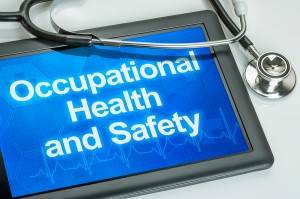Occupational Hazards in Hospital Emergency Rooms
If you work in a hospital emergency room, there are several workers’ compensation-related issues you might not be aware of. Hospital Emergency Department workers face several types of workplace hazards and threats that could result in a workers’ compensation claim. An experienced New Jersey workers’ compensation attorney may be able to help you understand whether your workplace conditions are acceptably safe or whether you might have a case to bring a workers’ compensation claim.
Many hazards faced by emergency room workers are common to many types of workplaces but are potentially more prevalent or dangerous in the hospital. For example, ER workers are likely to be routinely exposed to some hazardous chemicals or unsafe drugs in the course of their work, especially when administering drugs or decontaminating patients. A workplace can try to mitigate these concerns by implementing a program to maximize employee safety and ensure effective and safe administration of drugs. If these safety measures are not implemented, a New Jersey workers’ compensation attorney may be able to help you recover for your injuries.
Emergency departments also present significant risks for slips, trips, and falls due to the fast-paced and emergency atmosphere in tight spaces. Water or other liquids spilled on the floor, cords stretched across corridors and blocked passageways due to equipment also present hazards. An employer should try to keep floors clean and dry and ensure that exists and doors are unobstructed at all times in order to prevent serious injuries.
One particular hazard faced by emergency department workers is the risk of contact with blood and bloodborne pathogens. Employers can mitigate these risks by ensuring that employees ensure employees wear corresponding personal protective equipment, such as gloves and face masks, to limit their exposure to blood or Other Potentially Infectious Material (OPIM). There should be clear policies in place to appropriately discard contaminated needles and sharp instruments as soon as possible after use, and it should be encouraged to treat all blood and OPIM as potentially infectious and handled as such. The Occupational Safety and Health Administration recommends that all a log be maintained of all needlestick and sharp injuries (while maintaining the confidentiality of the injured employees) and that employers provide any employee who reports an exposure incident with a confidential medical evaluation.
If you have further questions about hazards that might exist in your workplace, contact New Jersey workers’ compensation attorney Dan Matrafajlo at (908) 248-4404.


